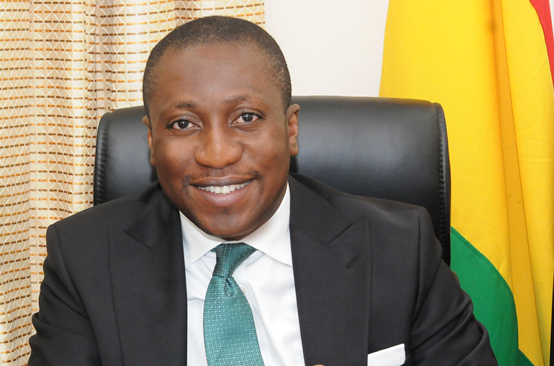
Don’t scandalise Judiciary - Majority to Minority
The Majority in Parliament has said the decision by the Minority to contest the Cape Coast High Court ruling that annulled the election of the National Democratic Congress (NDC) Member of Parliament for Assin North is tantamount to “scandalising the independence of the Judiciary”.
It said the Minority would not have undermined only the independence of the Judiciary but also the trust Ghanaians had in the Judiciary, a posture that could potentially escalate tension in the country.
According to the Majority, the Minority, like all groups of Ghanaians, had a solemn duty to protect the peace of the country and must, therefore, be mindful of its stance to dispute the Cape Coast High Court ruling against Mr James Gyakye Quayson.
“When we do these things to escalate tension and mislead people into believing that our institutions are not working, all that we are calling for is chaos and lawlessness. We believe that the Minority and its leadership in Parliament should not have come to scandalise the court,” it said.
Addressing the press in Parliament last Friday, the Deputy Majority Leader, Mr Alexander Afenyo-Markin, said: “The least the Minority could do is respect the court’s decision and not scandalise the Judiciary.”
He was reacting to a press conference the Minority held last Thursday to express their readiness to contest the Cape Coast High Court ruling that ordered Mr Quayson not to hold himself as the MP for Assin Central.
Wake up to reality
Mr Afenyo-Markin said the Majority were disappointed at the disrespect their counterparts in the Minority had shown to the Cape Coast High Court ruling that annulled the election of Mr Quayson.
He said the Majority rather expected the Minority, no matter how desperate they were for power, to wake up to the reality of the rule of law, which was part of the governance of the country.
He cited Article 125 (1 to 3) of the 1992 Constitution, which states: “Justice emanates from the people and shall be administered in the name of the Republic by the Judiciary, which shall be independent and subject to only this Constitution.
“The judicial power of Ghana shall be vested in the Judiciary. Accordingly, neither the President nor Parliament nor any organ or agency of the President or Parliament shall have or be given the final judicial power.”
He accused the NDC Minority of “gaining notoriety of always coming out to scandalise” the Judiciary if a court’s ruling or judgment did not go in their favour.
Precedent
Citing a precedent similar to the High Court ruling against Mr Quayson, Mr Afenyo-Markin recalled the case of the late former NPP MP for Bawku Central, Mr Adamu Sakande.
He said during the trial of the MP, a High Court had asked whether or not at the time of filing his nomination to be an MP Mr Sakande owed allegiance to any country.
“His answer was that he had initiated the process of giving up his British citizenship. This matter travelled all the way to the Supreme Court and the court’s position was that at the time he filled the form, he had still not given up his British citizenship and, accordingly, he was not qualified to be a candidate, let alone occupy the chamber of Parliament.”
